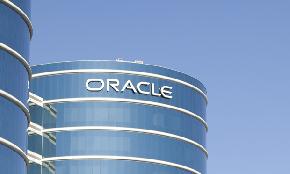As part of the Small Business Administration’s environmental policy, there are certain types of due diligence products that require a Reliance Letter when submitted to the SBA. “It’s just a letter, how complicated could that be?” you might say, but this is one of the most common sources of issues for SBA lenders during environmental due diligence, so I think it bears a little discussion.
What is a Reliance Letter?
A Reliance Letter is used to convey the right to rely on a report to a particular party (someone other than the original user of the report). For example, a lender will engage an environmental professional to perform a Phase I Environmental Site Assessment, so the user is the lender and additional reliance may be granted to other parties, such as the SBA. Without this reliance, an additional party could perhaps review a report but would not be able to rely on it for their own due diligence or liability protection.
Many firms have their own templates for Reliance Letters. The SBA Reliance Letter is a specific SBA form to be filled out and signed by the environmental professional and the firm providing the report verifying that they meet the qualifications of an environmental professional as stated by the SBA. They also must indicate on the form whether they performed a Transaction Screen, Phase I Environmental Site Assessment, or Phase II Environmental Site Assessment, and that they are impartial to the property. The Reliance Letter has to be accompanied by evidence of the environmental professional’s or their firm’s insurance.
How and when is a Reliance Letter used?
For SBA environmental due diligence, a reliance letter is required for the Transaction Screen, (a scaled down version of the Phase 1 Environmental Site Assessment), a Phase I Environmental Site Assessment, and a Phase II Environmental Site Assessment.
With a Records Search with Risk Assessment (RSRA) report, there is no Reliance Letter required due to the very limited scope of work of this report and because it is a non-ASTM report (this report was created by SBA). This is a common misunderstanding among some SBA lenders as they often request the Reliance Letter along with the RSRA report. Being that one of the purposes of the Reliance Letter is engaging the environmental professional’s liability insurance, SBA clearly states in SOP 5010 5 (E) Appendix 2 Definitions of RSRA, “This report need not be addressed to the SBA and need not be accompanied by a Reliance Letter.” An environmental professional is not going to provide a Reliance Letter for this limited scope of work.
So what is complicated about an SBA Reliance Letter?
The complication comes in because some environmental professionals or consultants are unwilling to sign the SBA’s Reliance Letter. This could be for several reasons, including:
- SBA requires that the letter be on the consultant’s letterhead and the verbiage not be altered. Some consultants may dislike that the SBA is dictating what they must say.
- The contract is between the consultant and their client. When the consultant grants third party reliance to the SBA, they open up their liability exposure.
- The letter requires liability insurance coverage of $1,000,000, and a policy of this amount is usually matched with a substantial deductible. This coverage amount is the industry standard and shouldn’t be a burden for most consulting firms, but again, granting additional reliance increases a consultant’s liability exposure and some may not be comfortable with this. Furthermore, a consultant may have the appropriate protection when the letter is signed, but what if they do not have the same protection when a claim is made? The consultant would be on the hook and could lose everything.
I get a call at least once a month from a lender that one of their friends or associates has told them to call me for some answers. The call typically goes like,
“Gary, I had a Phase I report performed on a property and it came back clean. However, it was screened out by SBA because the EP didn’t include the Reliance Letter. When I went back to the EP to get the Reliance Letter signed he said he wouldn’t sign it. Can you review his report and give me a Reliance Letter? “
The answer to this question is ALWAYS “no.” One firm can’t provide reliance on another firm’s report, nor would they ever want to because it is the Reliance Letter that engages the firm’s liability insurance. In this case, the lender has to reorder a Phase I Environmental Site Assessment when they are close to closing, doubling the cost and the turnaround time.
When engaging an environmental professional or environmental consultant to perform an SBA Transaction Screen, Phase I Environmental Site Assessment, or Phase II Environmental Site Assessment, ALWAYS give them a copy of the most up to date SBA Reliance Letter (currently found in SOP 5010 5 (E) Appendix 3), and ask if they will sign it, without changing it, upon completion of the project. If they say no, find an environmental professional that will stand behind their work – and that has the Errors & Omissions insurance levels required by SBA.
Upcoming Webinar on SBA Loan Liquidation SOP
For more information on SBA due diligence for loan liquidations (SOP 50 57) check out our upcoming webinar on May 9th at 2pm eastern. Click on this link to register: SBA Loan Liquidation Due Diligence Webinar.

















 Copyright © 2024 ALM Global, LLC. All Rights Reserved.
Copyright © 2024 ALM Global, LLC. All Rights Reserved.